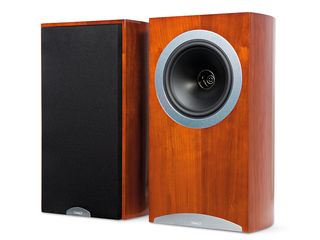Interview: Tannoy
Scottish brand that's the Hoover of PA systems

Tannoy is one of the most familiar names in UK tech – with the AV brand's name used as a generic term for PA systems in the same way as Hoover is for vacuum cleaners.
As part of Brit Week, TechRadar caught up with Tim Lount, the vice president of the Tannoy – which is based in Coatbridge, Lanarkshire.
TR: What makes Tannoy such a well-recognised British AV brand?
Lount: 80-years of UK designed loudspeaker technology has seen the very name Tannoy become a household phrase. Everyone hears an announcement 'over the Tannoy'!
The name Tannoy is in the Oxford English dictionary such is its importance as a British manufacturer. In fact, Tannoy is one of the oldest and most prestigious audio brands in the world, having been founded as the Tulsemere Manufacturing Company back in 1926. The name originates from a solid-state rectifier invented by company founder, Guy Fountain, made from a Tantalum alloy – hence the name Tannoy.
Do you think British buyers are more likely to buy a product from a British brand?
It very much depends on the buyer. Some AV and Hi-Fi buyers are serious anglophiles and love the history and heritage of famous British brands.
Get daily insight, inspiration and deals in your inbox
Get the hottest deals available in your inbox plus news, reviews, opinion, analysis and more from the TechRadar team.
But generally the British buyer is more sensitive to absolutes like performance and design rather than geographic company ownership. Just look at British roads – no other country in the world has such a diverse range of makes, models and even types of car driving up and down the country.
British brands cannot simply rely on their Britishness to sell in the UK and have to constantly produce products at the cutting edge of technical and aesthetic design.
How does Tannoy compete on a global scale?
Tannoy is a massive brand internationally and overseas sales account for over 90% of Tannoy's turnover! Asian AV and Hi-Fi enthusiasts in countries such as Japan, China and Malaysia are huge Tannoy fans and the company's long history dovetails nicely with the gravitas that Asian culture puts on its own heritage.
Many of the Prestige model loudspeakers, that are made in Glasgow are shipped out to Asia, even feature a Union Jack badge. Tannoy is also very big player in the US, predominantly for its commercial beam-steering, touring and stadium speakers.
The innovative (114db/watt efficient!) VQ-series has become the loudspeaker of choice in the enormous American 'Worship Audio' market, catering for 800-15,000 seat churches and houses of worship.
What problems, if any, come from being British-based?
Being British based you simply cannot build a product in the UK to compete at the entry level of the AV market.
To hit price points of today's affordable speakers you need to design a speaker in the UK and outsource manufacturing to trusted suppliers in Eastern Europe or the Far East. While getting excellent quality from these suppliers is no longer the issue it once was, simple logistics, language and transport issues are always an ongoing challenge.
Are there any qualities that you think are unique to British AV brands?
For loudspeaker brands in particular, the sheer history and heritage of the UK Hi-Fi and AV industry carries massive weight around the world.
British loudspeakers are an object of desire and aspiration for almost every young Asian entrepreneur.
Products like the 50,000 US-dollar per pair Tannoy Kingdom Royal loudspeakers has become status symbols of success in many parts of the world.
Moreover, British loudspeaker brands have dedicated many, many years (eight decades in Tannoy's case!) to fine tuning the concept of a piston driver mounted in a cabinet. The British loudspeaker industry can justifiably say that it leads world in music and movie sound reproduction.
Patrick Goss is the ex-Editor in Chief of TechRadar. Patrick was a passionate and experienced journalist, and he has been lucky enough to work on some of the finest online properties on the planet, building audiences everywhere and establishing himself at the forefront of digital content. After a long stint as the boss at TechRadar, Patrick has now moved on to a role with Apple, where he is the Managing Editor for the App Store in the UK.

